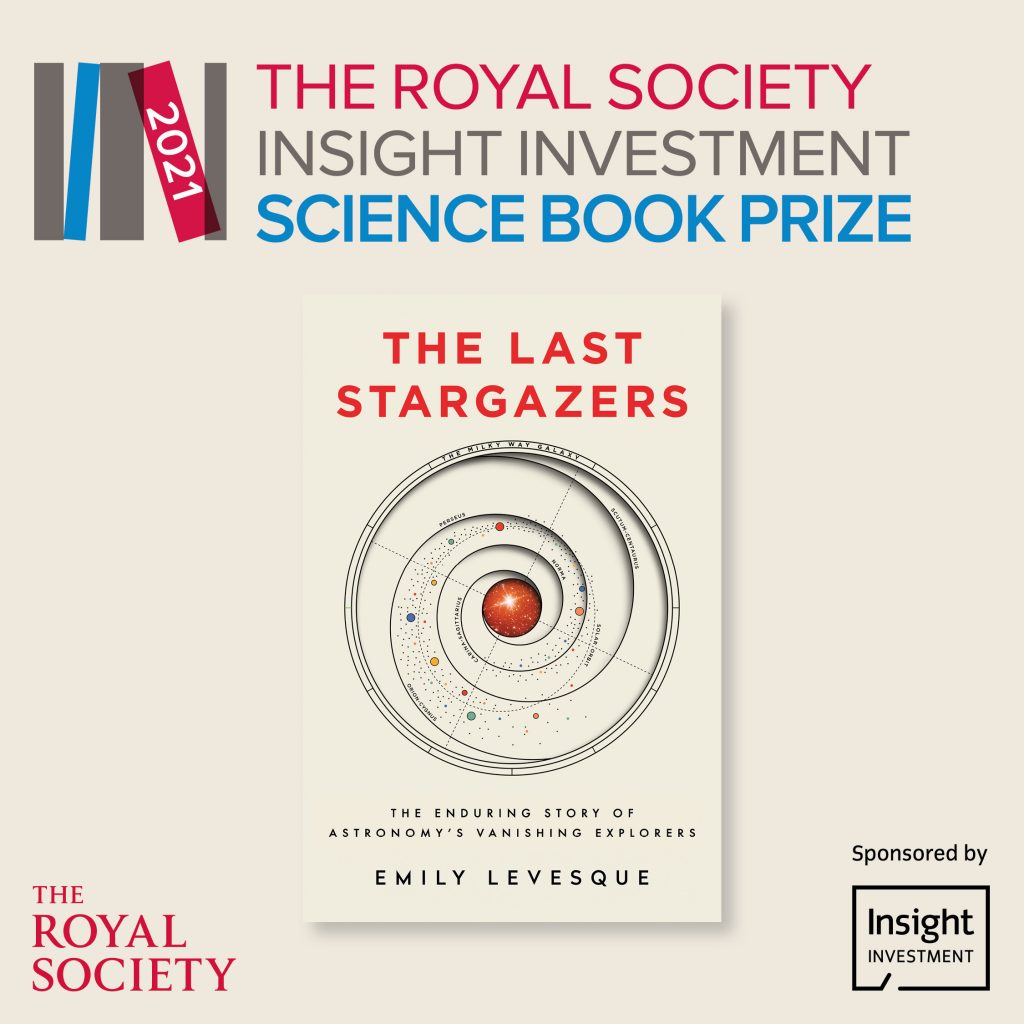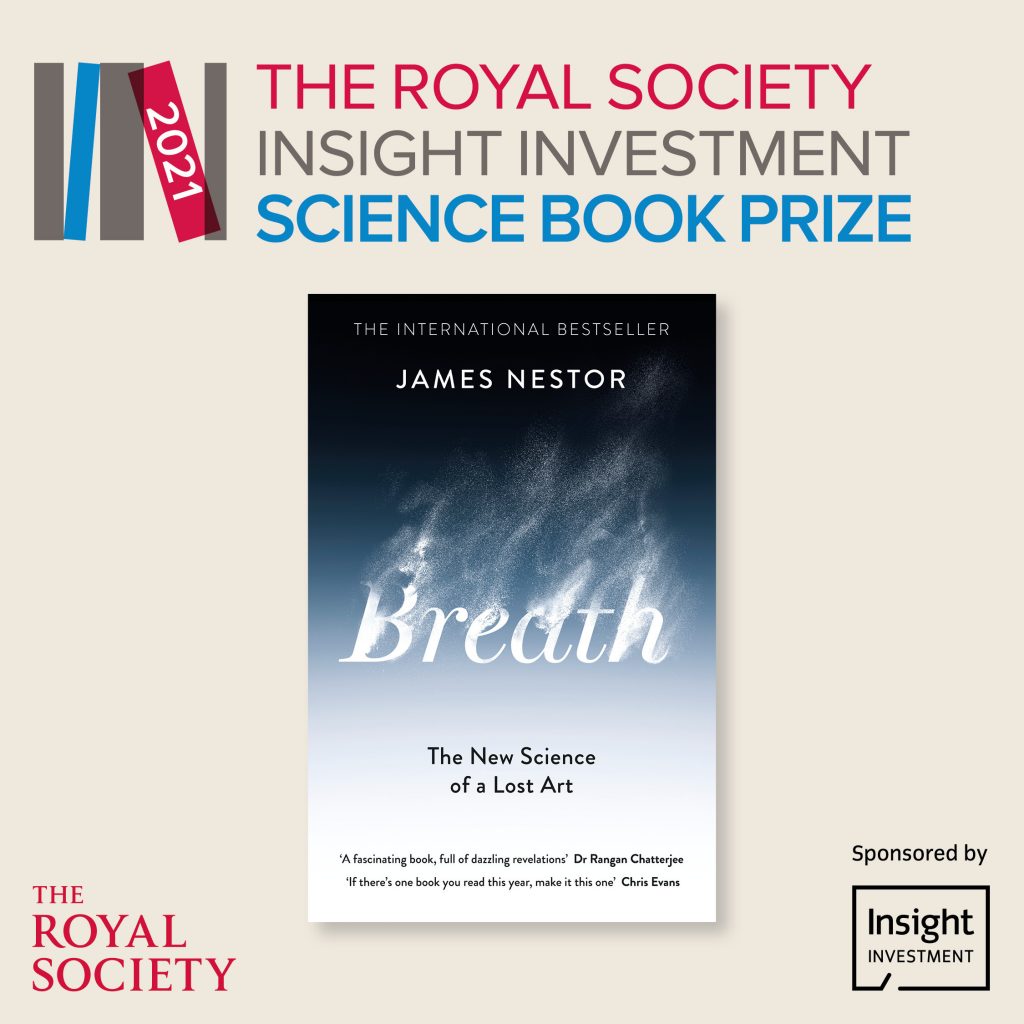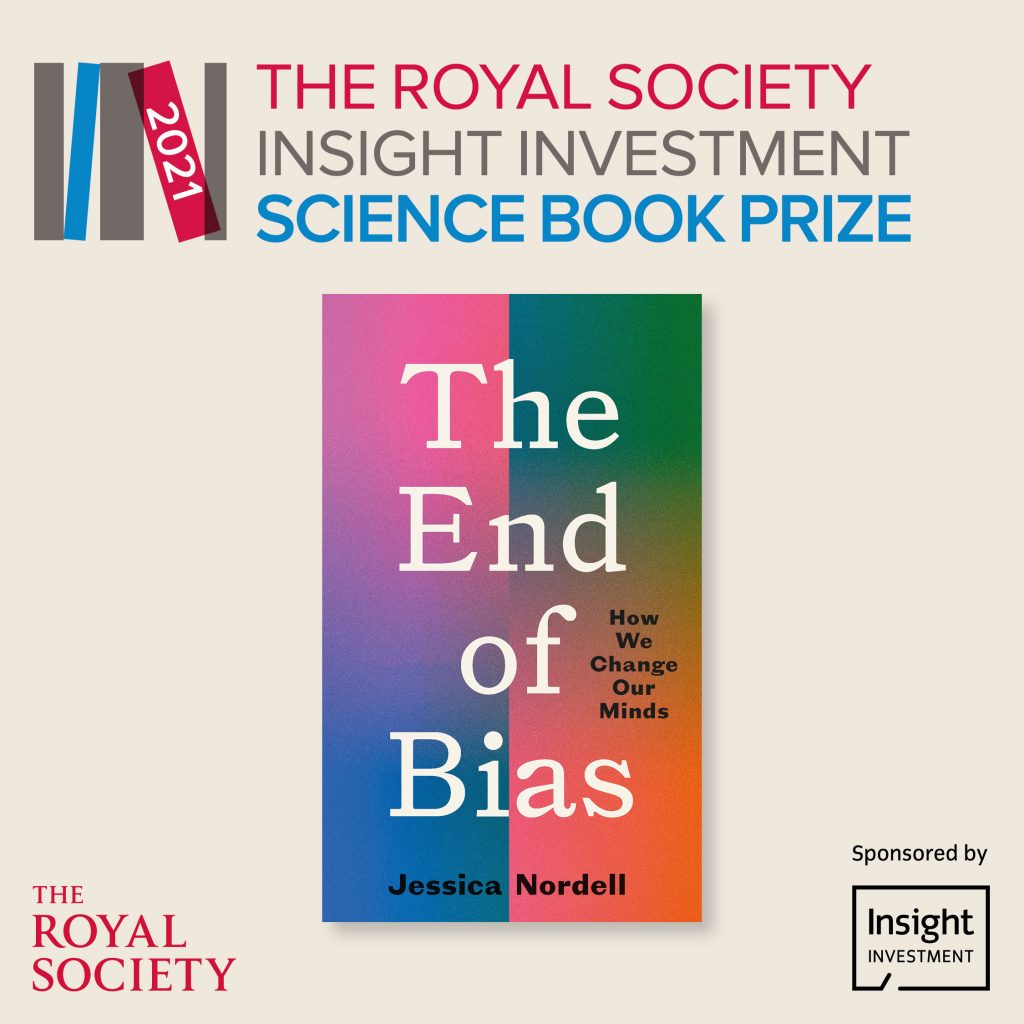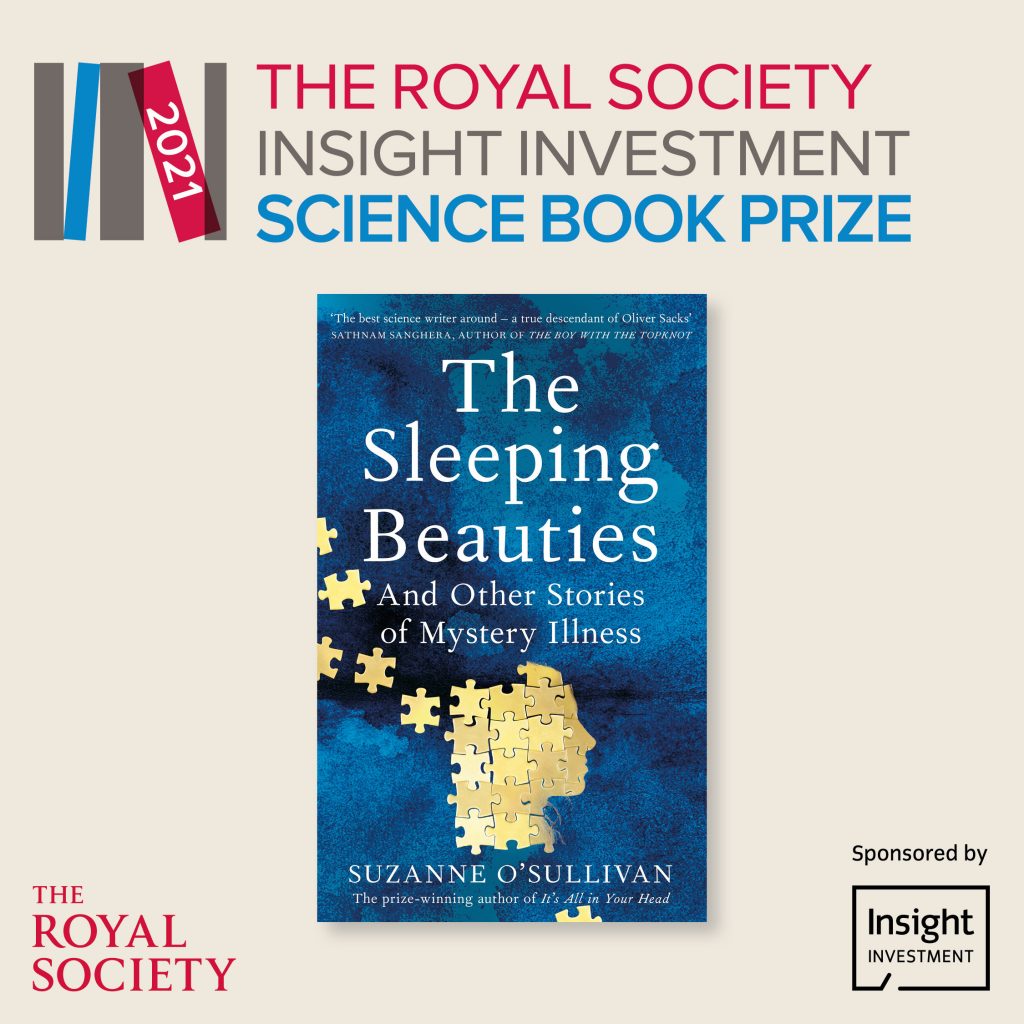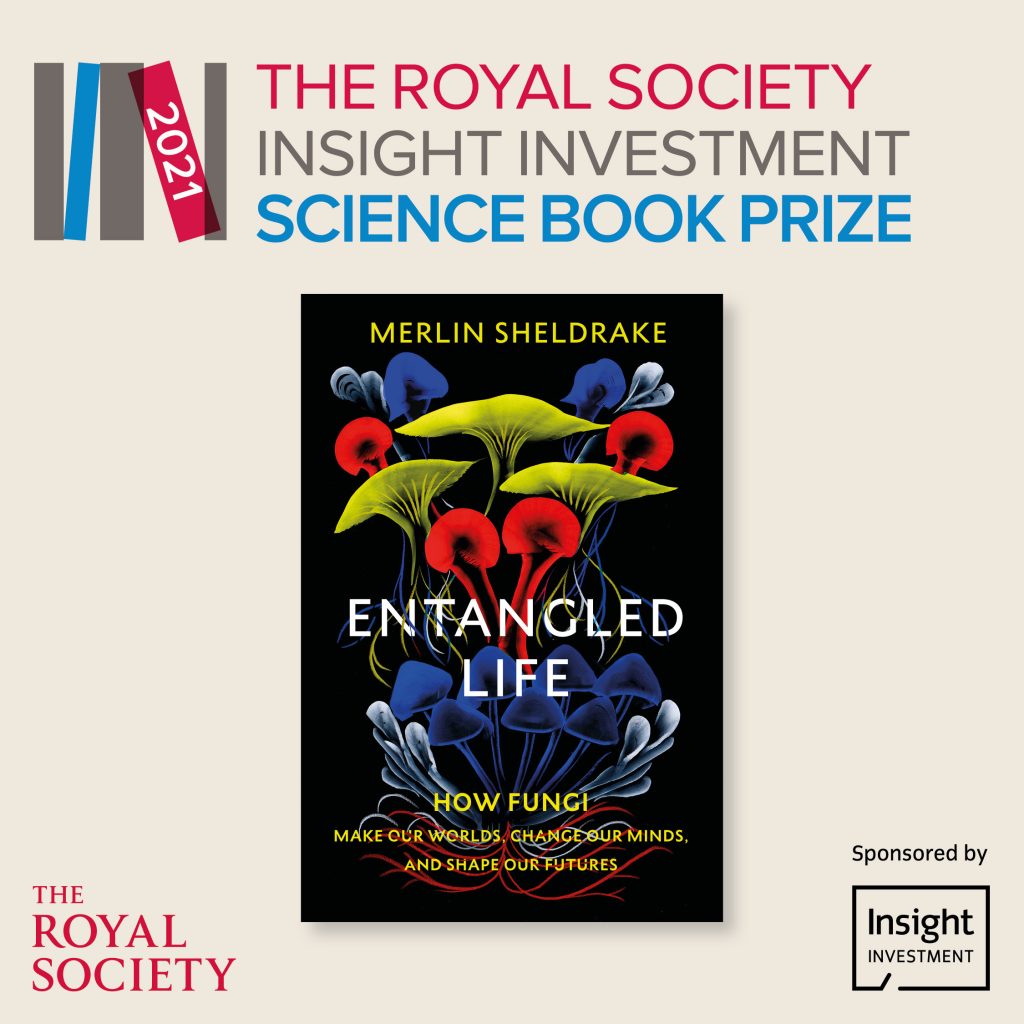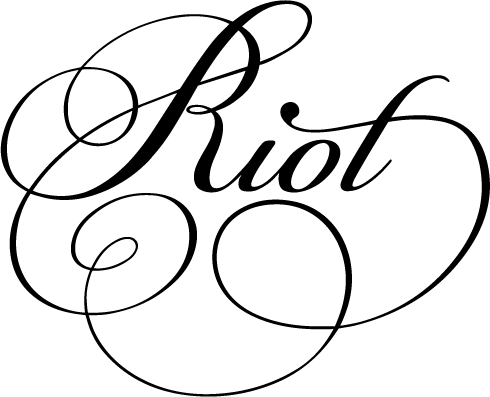Shortlist for 2021 Royal Society Science Book Prize revealed
29 Sep 2021 -
- Six titles providing fresh insights on major global issues and illuminating little-known, remarkable subjects are shortlisted for the prestigious prize for popular science writing.
- Two books tackle bias in science, joining a runaway bestseller on the surreal world of mushrooms and an account of the life of a modern-day astronomer. A detective story into extraordinary ‘mystery’ illnesses and an eye-opening look at the lost art of breathing complete the list.
- Two debut authors feature on the list in journalist James Nestor and science and culture journalist, Jessica Nordell.
- “This year’s shortlist reflects more than ever the huge strength and diversity of topics evident in science writing. Every book is very accessible to all, and each in its own way is quite remarkable.” – Professor Luke O’Neill FRS, 2021 Chair of Judges.
The Royal Society today reveals the shortlist for the Royal Society Science Book Prize 2021, sponsored by Insight Investment. This year’s shortlisted books, chosen from a record number of 267 submissions, demonstrate the breadth, depth, accessibility, and joy of the best popular science writing from all over the world.
Two debut authors make the 2021 shortlist in journalist James Nestor and science and culture journalist, Jessica Nordell. They are joined by astronomer Emily Levesque and neurologist Suzanne O’Sullivan. Psychologist Dr Stuart Ritchie and biologist and writer Merlin Sheldrake complete the six-strong list, from which a winner will be chosen in November.
The full 2021 shortlist is (in order of author surname):
- The Last Stargazers: The Enduring Story of Astronomy’s Vanishing Explorers by Emily Levesque (Oneworld)
- Breath: The New Science of a Lost Art by James Nestor (Penguin Life)
- The End of Bias: How We Change Our Minds by Jessica Nordell (Granta Books)
- The Sleeping Beauties: And Other Stories of Mystery Illness by Suzanne O’Sullivan (Picador)
- Science Fictions: Exposing Fraud, Bias, Negligence and Hype in Science by Stuart Ritchie (Bodley Head)
- Entangled Life: How Fungi Make Our Worlds, Change Our Minds and Shape Our Futures by Merlin Sheldrake (Bodley Head)
Chair of the 2021 judging panel, Professor Luke O’Neill Osbourn FRS, Professor of Biochemistry in the School of Biochemistry and Immunology, Trinity Biomedical Sciences Institute at Trinity College Dublin, Ireland, comments:
“This year’s shortlist reflects more than ever the huge strength and diversity of topics evident in science writing. Every book is very accessible to all, and each in its own way is quite remarkable. The topics range from an account of what it’s like to be a woman in the field of astronomy (which also conveys the enduring fascination we have with the stars), why breathing optimally is so important for our health and well-being, the scientific basis of why we are so biased when it comes to our views, the related topic of fraud and bias in science, mystery illnesses and, finally, the fascinating world of fungi.
“Each is important and compelling, conveying the wonder of science but also highlighting issues that we should all be concerned about. Important, accessible science writing is certainly alive and well with this enthralling list of titles.”
Two books take a closer look at the worlds beneath our feet and beyond Earth’s atmosphere. In The Last Stargazers, Emily Levesque reveals the hidden world of stargazing, celebrating the ingenuity and curiosity of the profession, instilling cosmic awe in the reader. In Merlin Sheldrake’s Entangled Life, our perspective shifts from the galactic to the fungal, taking the reader on a guided tour of the hidden world that supports and sustains nearly all living systems.
A further two books deal with the human body, its remarkable systems but also its endless mysteries. Breath by James Nestor explores one of biology’s most basic functions, upending what we think we know about breathing and demonstrating how over thousands of years we have learned to do it wrong, with devastating consequences. In Sleeping Beauties, Suzanne O’Sullivan investigates a series of disparate diagnostic mysteries: psychosomatic illnesses, or medical disorders apparently caused as much by factors of the mind as by the body.
The final two titles set their sights on the limitations and fallibility of scientific practice, highlighting how these can impact our societies and imagining how we might improve them. Science Fictions by Stuart Ritchie reveals how bias, mistakes and even outright forgery can influence everything from austerity economics to anti-vaccination movements, proposing vital remedies. In The End of Bias, Jessica Nordell delves into the cognitive science and social psychology underpinning efforts to create change, and meets some of the pioneers developing new practices, from mindfulness-adopting police to lawyers and educators striving to embed quality from the playroom to the boardroom.
A third of the books on the shortlist come from independent publishers, while Penguin Random House has three nominated titles.
For 33 years, the Prize has promoted the accessibility and joy of popular science writing. It has celebrated some truly game-changing reads: books that offer fresh insights on the things that affect the lives we lead and the decisions we make, from neurodiverse perspectives on everyday living (Explaining Humans by Dr Camilla Pang, 2020) to gender bias (Invisible Women by Caroline Criado Perez, 2019) and the harms humans are wreaking on the planet (Adventures in the Anthropocene by Gaia Vince, 2015, and Six Degrees by Mark Lynas, 2008). In 2021, the judges renew their search for the most compelling science writing of the last year, at a time when the power of effective science communication is valued more highly than ever before.
Alongside Professor Luke O’Neill FRS, the 2021 judging panel comprises: television presenter, Ortis Deley; mathematician and Dorothy Hodgkin Royal Society Fellow, Dr Anastasia Kisil; author and creative writing lecturer, Christy Lefteri, and journalist, writer and film maker, Clive Myrie.
The winner of the 2021 Royal Society Science Book Prize, sponsored by Insight Investment, will be revealed at a ceremony in London on 29th November. They will receive a cheque for £25,000, with £2,500 awarded to each of the five shortlisted authors.
